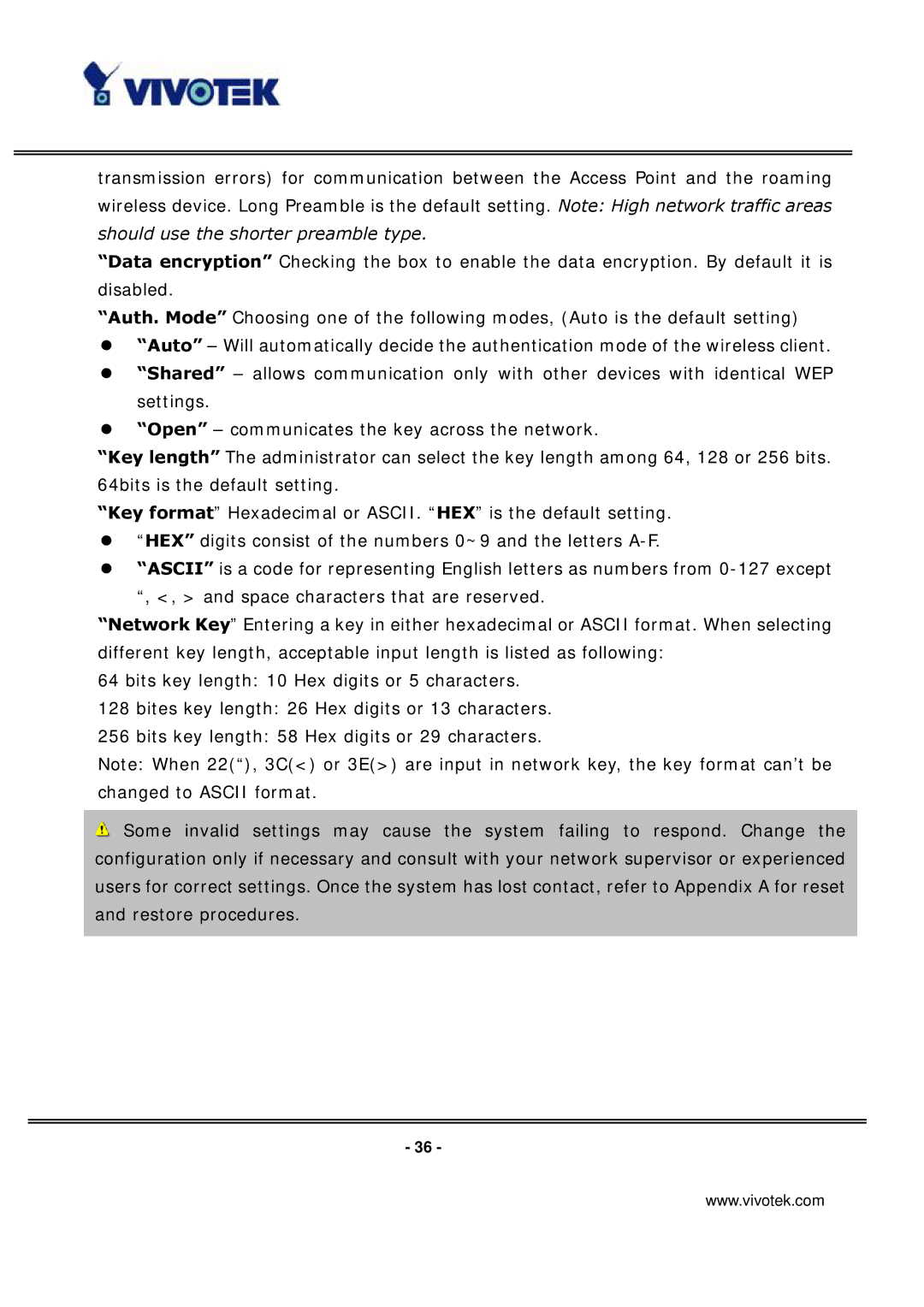
transmission errors) for communication between the Access Point and the roaming wireless device. Long Preamble is the default setting. Note: High network traffic areas should use the shorter preamble type.
“Data encryption” Checking the box to enable the data encryption. By default it is disabled.
“Auth. Mode” Choosing one of the following modes, (Auto is the default setting)
z“Auto” – Will automatically decide the authentication mode of the wireless client.
z“Shared” – allows communication only with other devices with identical WEP settings.
z“Open” – communicates the key across the network.
“Key length” The administrator can select the key length among 64, 128 or 256 bits. 64bits is the default setting.
“Key format” Hexadecimal or ASCII. “HEX” is the default setting.
z“HEX” digits consist of the numbers 0~9 and the letters
z“ASCII” is a code for representing English letters as numbers from
“Network Key” Entering a key in either hexadecimal or ASCII format. When selecting different key length, acceptable input length is listed as following:
64 bits key length: 10 Hex digits or 5 characters.
128 bites key length: 26 Hex digits or 13 characters.
256 bits key length: 58 Hex digits or 29 characters.
Note: When 22(“), 3C(<) or 3E(>) are input in network key, the key format can’t be changed to ASCII format.
![]() Some invalid settings may cause the system failing to respond. Change the configuration only if necessary and consult with your network supervisor or experienced users for correct settings. Once the system has lost contact, refer to Appendix A for reset and restore procedures.
Some invalid settings may cause the system failing to respond. Change the configuration only if necessary and consult with your network supervisor or experienced users for correct settings. Once the system has lost contact, refer to Appendix A for reset and restore procedures.
- 36 -
www.vivotek.com
